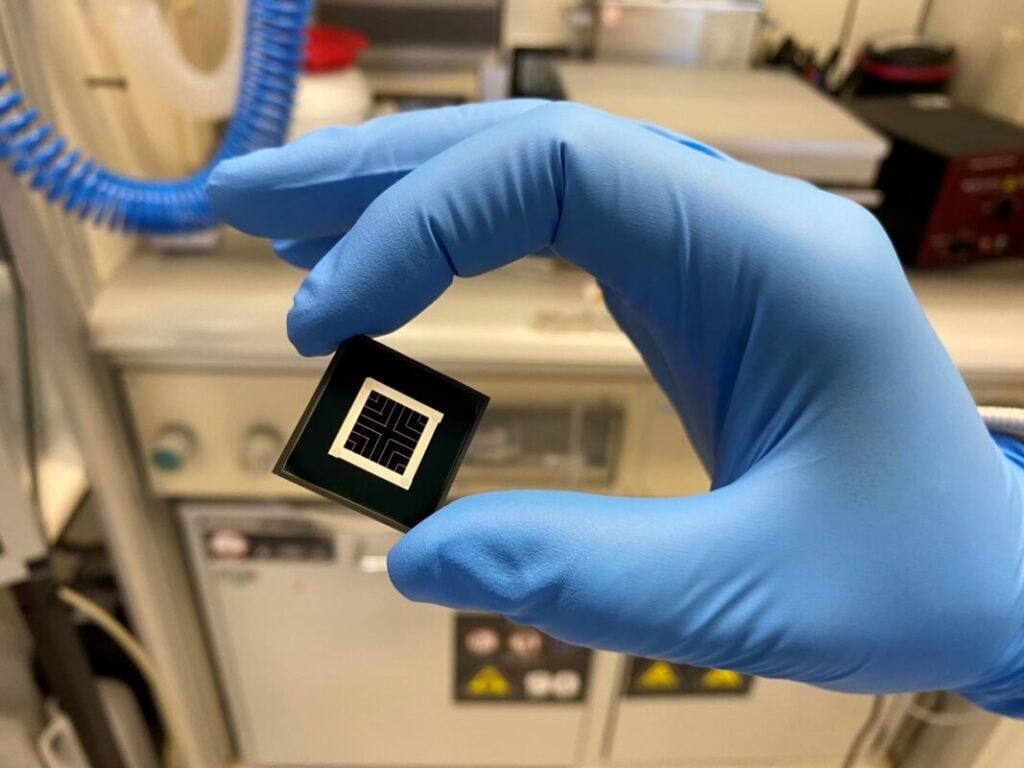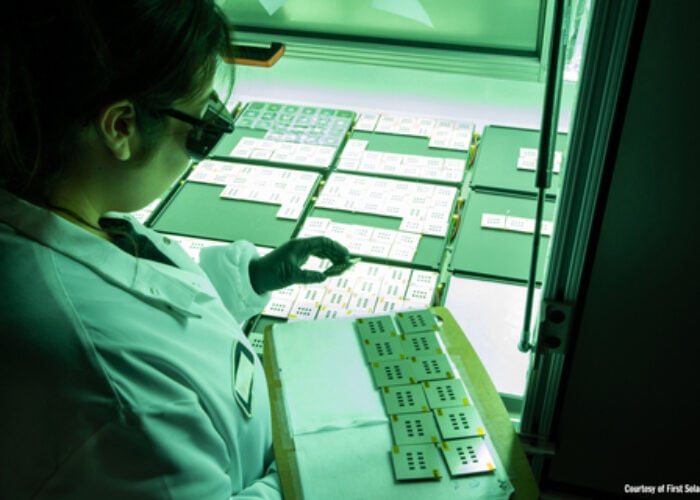
Japanese manufacturing group Sekisui Chemical has announced plans to build a 100MW thin-film perovskite solar cell manufacturing facility.
The plans, released in late December, say the company intends to establish a new company, Sekisui Solar Film Co, to build a 100MW production line for “lightweight and flexible perovskite solar cells” by 2027.
Try Premium for just $1
- Full premium access for the first month at only $1
- Converts to an annual rate after 30 days unless cancelled
- Cancel anytime during the trial period
Premium Benefits
- Expert industry analysis and interviews
- Digital access to PV Tech Power journal
- Exclusive event discounts
Or get the full Premium subscription right away
Or continue reading this article for free
The scheme is backed by Japan’s Green Innovation Fund, a JPY2 trillion (US$12.6 billion) fund established to support the Japanese government’s energy transition and emissions reduction goals. The Development Bank of Japan holds a 14% minority stake in Sekisui Solar Film Co.; the remainder is held by Sekisui Chemical. According to Sekisui, the project will represent JPY90 billion (US$572 million) in investment.
The company is currently engaged in buying a manufacturing facility from fellow Japanese technology producer Sharp Corporation in Sakai City, Osaka Prefecture to house the perovskite cell production line.
Sekisui said the products will initially be deployed on low-load-bearing roofs and public-sector buildings to take advantage of their light weight and flexibility. It will then seek to increase deployments on private-sector buildings.
Beyond its 100MW plans, Sekisui Chemical said it also intends to establish Gigawatt-scale production of perovskite cells by 2030. This plan will receive support from the Japanese Ministry of Economy, Trade and Industry via its GX Supply Chain Construction Support Project – a plan to establish a domestic supply chain for energy transition technologies. Sekisui said it would receive JPY157.25 billion in subsidies from the scheme through February 2029.
Perovskite solar products are yet to enter mainstream mass production despite growing efforts from numerous research institutions and manufacturers. In 2024, British perovskite firm Oxford PV claimed it had shipped the first “commercial” perovskite-silicon tandem solar modules to an unnamed US client, though these are markedly different from the flexible perovskite cells being proposed by Sekisui.
As solar technology progresses, perovskite-silicon tandem products (rather than the perovskite-only cells Sekisui is proposing) are being broadly accepted as the next generation of solar products. German technology house Fraunhofer said perovskite-silicon tandem products were a “prerequisite” for the next stage of solar technology.
The most recent issue of our print journal, PV Tech Power, featured a deep dive cover feature into the “Hope and Hype” of perovskite solar technology.






